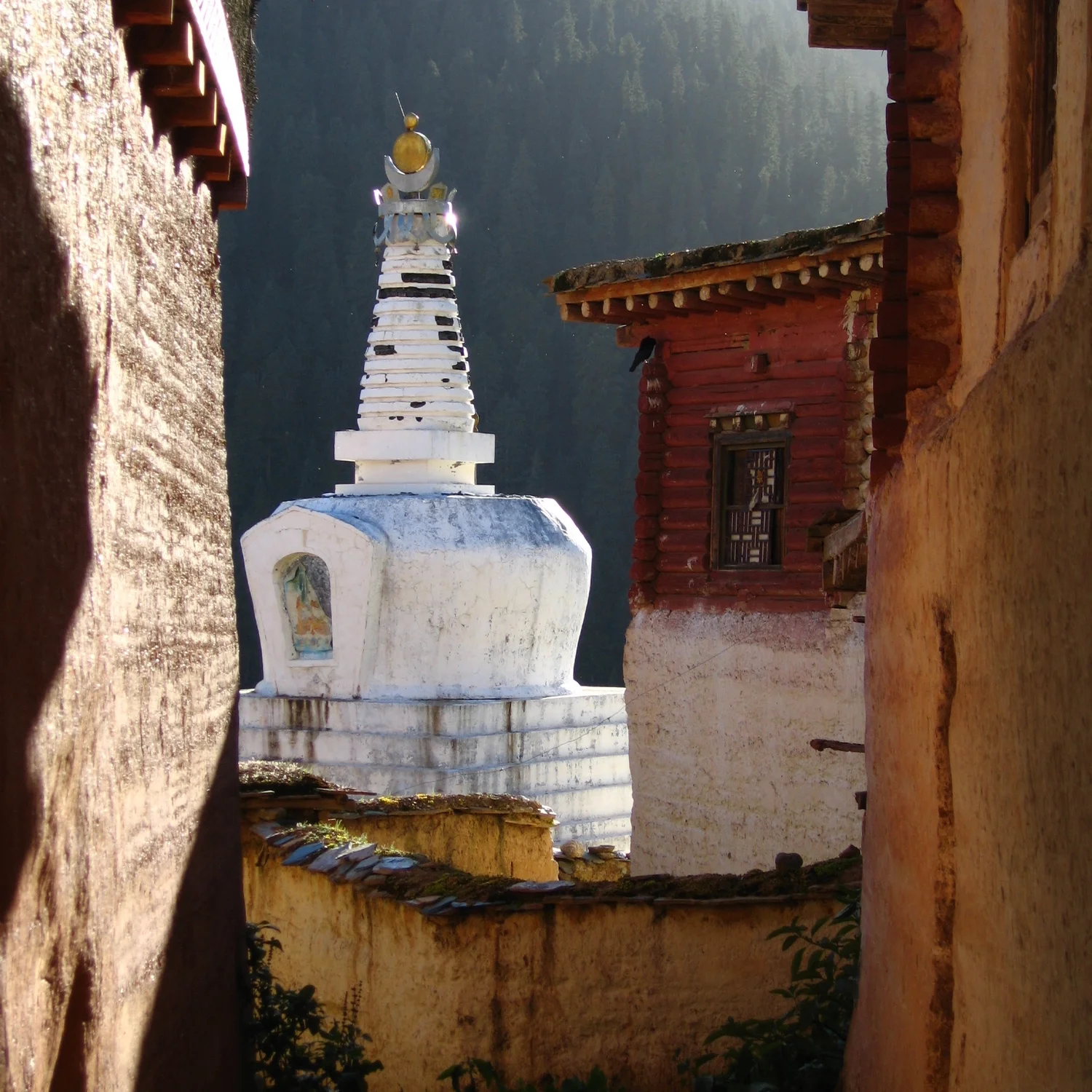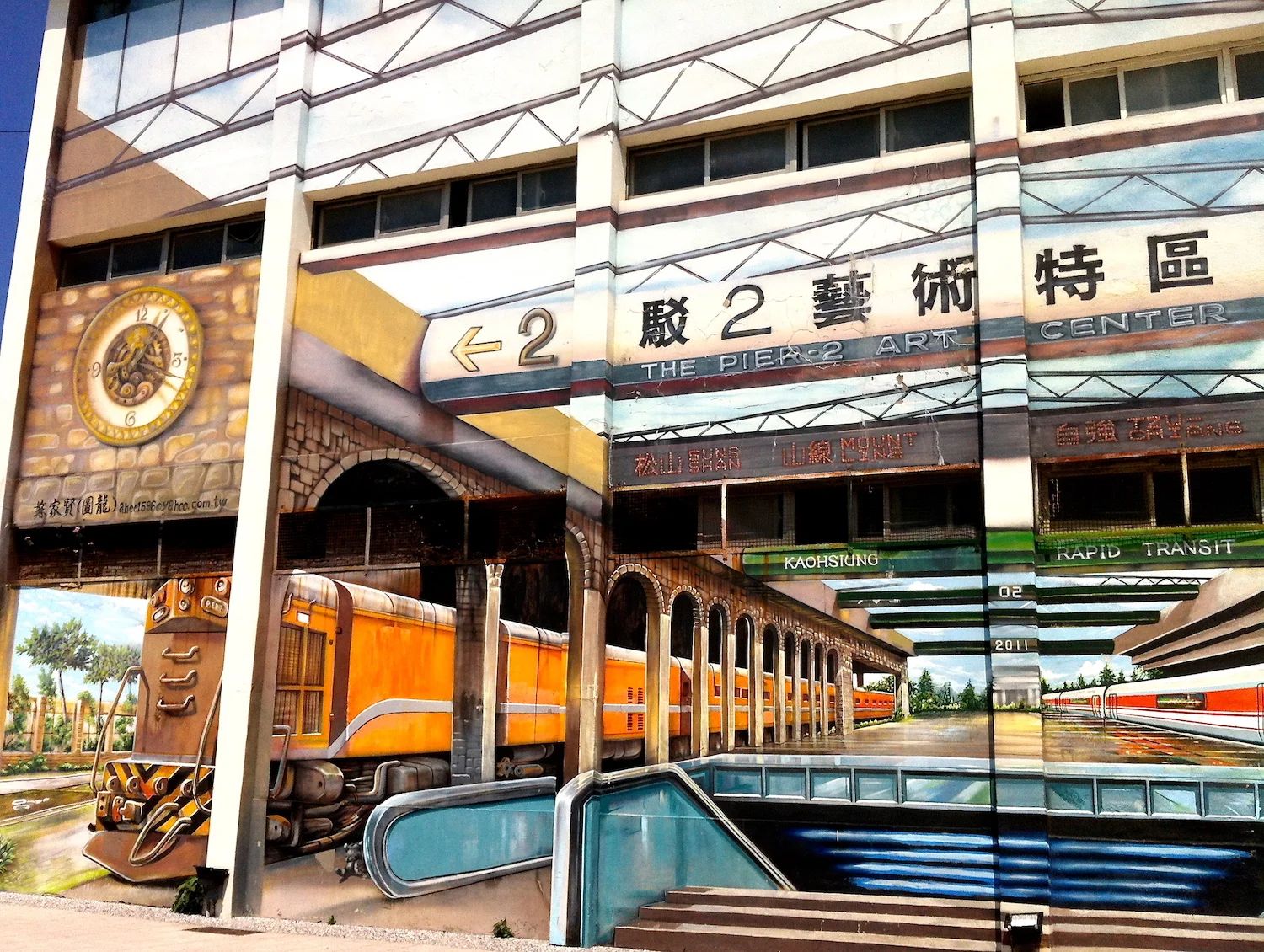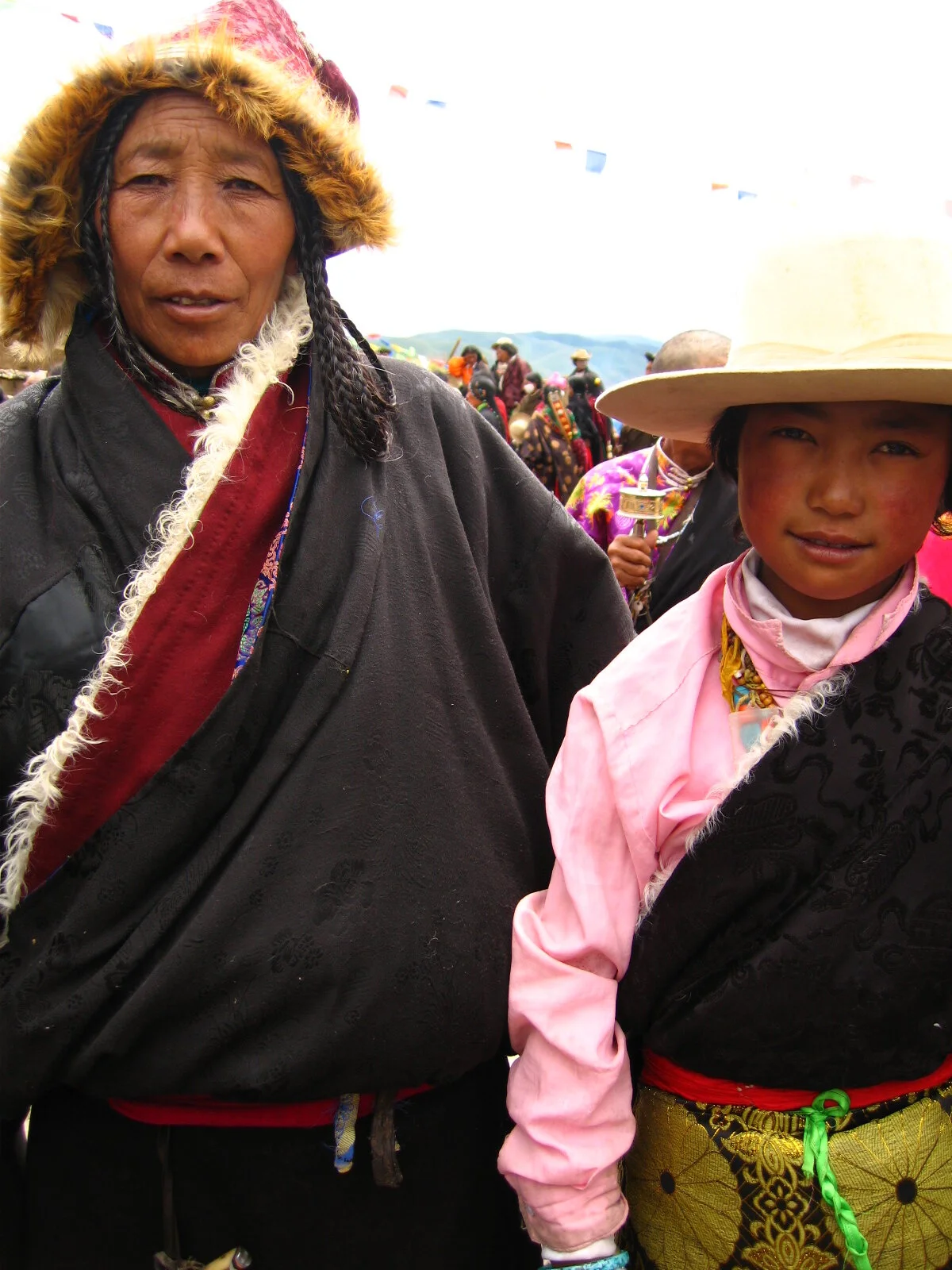The Trek to Little Potala Palace
by Chris Pady
While visiting the town of Derge (rhymes with reggae) in eastern Tibet, my partner, Michele, and I learn of Palpung, the area’s largest and most important Kagyupa (White) sect monastery, locally known as the “Little Potala Palace”.
Yet despite Palpung’s reputation, we have no luck hiring a guide through any of the town’s hotel staff, shopkeepers, or restaurant owners. Finally, we bump into an English-speaking monk who promises to arrange everything for us. “Meet here at 7 o’clock tomorrow morning”, he instructs, pointing to a designated spot. Nothing about the arrangement spells certainty, yet we’ve got nothing to lose.
The next morning, we anxiously wait as the town slowly awakens. We’re approached by a cautious young Tibetan girl. She’s dressed in a no-frills red
Afue’s Mandarin accent is strong and vastly different from the Taiwanese accent we’re accustomed to, and she doesn’t speak a lick of English. She is not exactly the experienced guide that what we had in mind.
The monk had also arranged for a taxi driver to take us to the trailhead about twenty minutes out of town. We are delivered to a local farm where we hoped to rent horses for the arduous trek over a significant mountain pass (over 13,000 feet). Renting a horse is particularly important for Michele, who is recovering from a
An internet search informed us that the rate should be around 30 kuai per day. The owner, a jovial Tibetan, smacks us with an opening bid of 250 kuai! Incredulous, we
I strap on my backpack while
Thirty minutes later, the sun emerges from behind the mountains to bathe the valley in physical and spiritual warmth. A layer of clothing is quickly shed as we admire our surroundings.
When we reach the next village shortly thereafter, the local children are quick gather and stare, wide-eyed, at the strange-looking foreigners. They’re bashful and unsure, keeping their distance, yet cannot hide their curiosity either.
We are led inside a wooden house and offered tea. Portraits of the Dalai Lama and other religious figures adorn the walls. The only sign of modern technology is an old cassette a player and few tapes.
This time, negotiations go much more smoothly and we agree on one horse for 50 kuai a day. Michele gratefully installs herself on the horse while
The trail continues in just one direction: up. At least I’ve lessened my load.
We climb for several hours, encountering more yaks than people. By the
However, things improve dramatically once we reach the other side of the pass. A large snow-capped mountain greets us in the distance, its stark whiteness contrasting sharply with the azure sky. Up here, on the roof of the world, far from any pollution, the colors possess qualities so vivid and pure that they almost don’t look real.
We come across a group of men boiling water next to the stream, preparing a tsampa (roasted barley flour) snack. Afue takes out a sheet of paper and asks them some questions. Her confused look hints that she’s lost and it dawns on me that she’s never been to Palpung before. This does not make me angry - how can you blame a young Tibetan for trying to make a little extra cash? As long as we make it there safely, there are no hard feelings on my end.
We picnic by a stream for lunch, in glorious sunshine, before moving on. About an hour later, we catch our first glimpse of the “Little Potala Palace”, perched majestically on a cliff in the distance. Its sheer size and location is imagery straight out of a Tolkien adventure.
We descend through a pleasantly-scented pine forest made of tall and gaunt pines. The alpine air is rejuvenating and the shade a welcome respite from the sun. We greedily forage on wild raspberries, orange in color, that grow in abundance along the path.
It’s late afternoon when we make one final ascent to the monastery. A young monk, solemn and polite, shows us to the guesthouse where we gladly dump our gear. He offers us some very dry yak meat and water before inviting us on a tour of the monastery. Afue disappears without a word.
We’re immediately treated to a spectacle of sorts by the residing monks. Separated into pairs, one partner sitting and the other standing, they launch into an exercise complete with forceful clapping gestures and spirited verbal exchanges. Later, I learn that this is a debating technique designed to sharpen the mind, with some bouts lasting up to three hours!
As entertaining as it is, I’m not about to stick around long enough to find out. Exhausted from the day’s efforts, the only debate running through my mind is whether I should skip brushing teeth or not before climbing into my sleeping bag.
Chris Pady spent many years traveling, writing and teaching in Asia. He fulfilled a lifelong dream by visiting Tibet over two consecutive summers in 2005 and 2006, and hopes to one day put together a collection of stories from his experiences atop the roof of the world. He now resides in Vancouver and can be reached at chris.pady@gmail.com.
Photography by Michele Black.








